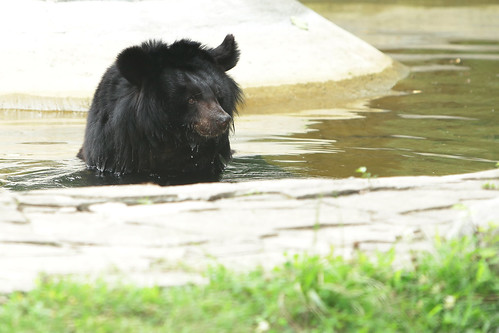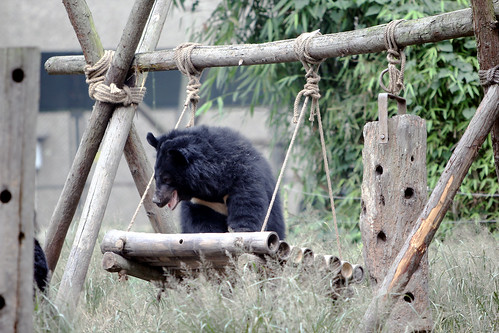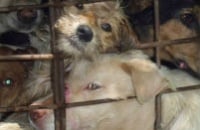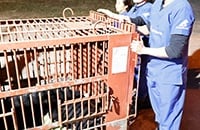Sanctuary Stars: Her voice provides a bridge between east and west
18 January 2017

Everyday Tina works between colleagues from her native China and the West – in making each understood she is key to everything the bear sanctuary achieves.
How did you come to work for Animals Asia?
While living in China, I read stories of bear file farming in a magazine a couple of years before I joined Animals Asia. I was shocked by the industry. By the time I saw an advertisement on a Chinese job hunting website, my memory was vague but still there so I applied for the job. I started as a translator in 2007 and was promoted to translator supervisor around four years ago then senior translator recently. I had worked for Animals Asia for many years and I guess had been doing well.
Can you outline what might be an "average" day with Animals Asia?
I supervise my team to do translation between western staff and Chinese staff on various things, such as bear behavior or veterinary concerns, management arrangements and anything which comes up during daily operations. Since we have Chinese assistant bear managers, all the records and reports need to be bilingual and that takes time to accomplish.

You must witness so many happy and sad stories - in terms of the cruelty and rehabilitation of the bears. What is that like? How does it make you feel and how does that impact on your job?
I have seen so many skinny bears with trauma all over their bodies on arrival. They cherish any tiny pieces of food and are scared of people. But over time they recover gradually – thanks to love and care from the whole team. Their demeanor changes and they start to trust people.
Having seen the whole process of rehabilitation, I’m very proud of my work and every day I work harder because what I’m doing means a lot to these poor bears.
When they’re fit and well again – it’s so enjoyable to watch them foraging, wrestling, playing or just relaxing on the grass. They really deserve a life like this after all they have suffered.
Do you think the campaign to end bear bile farming is being heard in your country?
Absolutely, while it was little known in the past, nowadays many people have heard about this industry and think it’s inhumane.
Chinese people are becoming increasingly aware of animal welfare. Nowadays it’s common to see people walking their pets, especially in big cities. There are more vet clinics and pet supply stores opening to help people care for their animals and more people are volunteering to campaign against eating dog and cat meat, wearing fur and other animal welfare causes.
What have you learnt about animals while working for Animals Asia?
Most importantly, I learned about animal welfare and animal needs. In the past, I thought that feeding an animal enough food without doing anything harmful was enough. But since working for Animals Asia I have learned about the five freedoms and the mental requirements of each individual animal. Now I consider them my friends and in return have received a lot of happiness through spending time with them.
BACK





 5 reasons the dog meat trade must end
5 reasons the dog meat trade must end
 New year, new home for Christmas the Bear!
New year, new home for Christmas the Bear!
 Veterinary welfare training – pain management
Veterinary welfare training – pain management